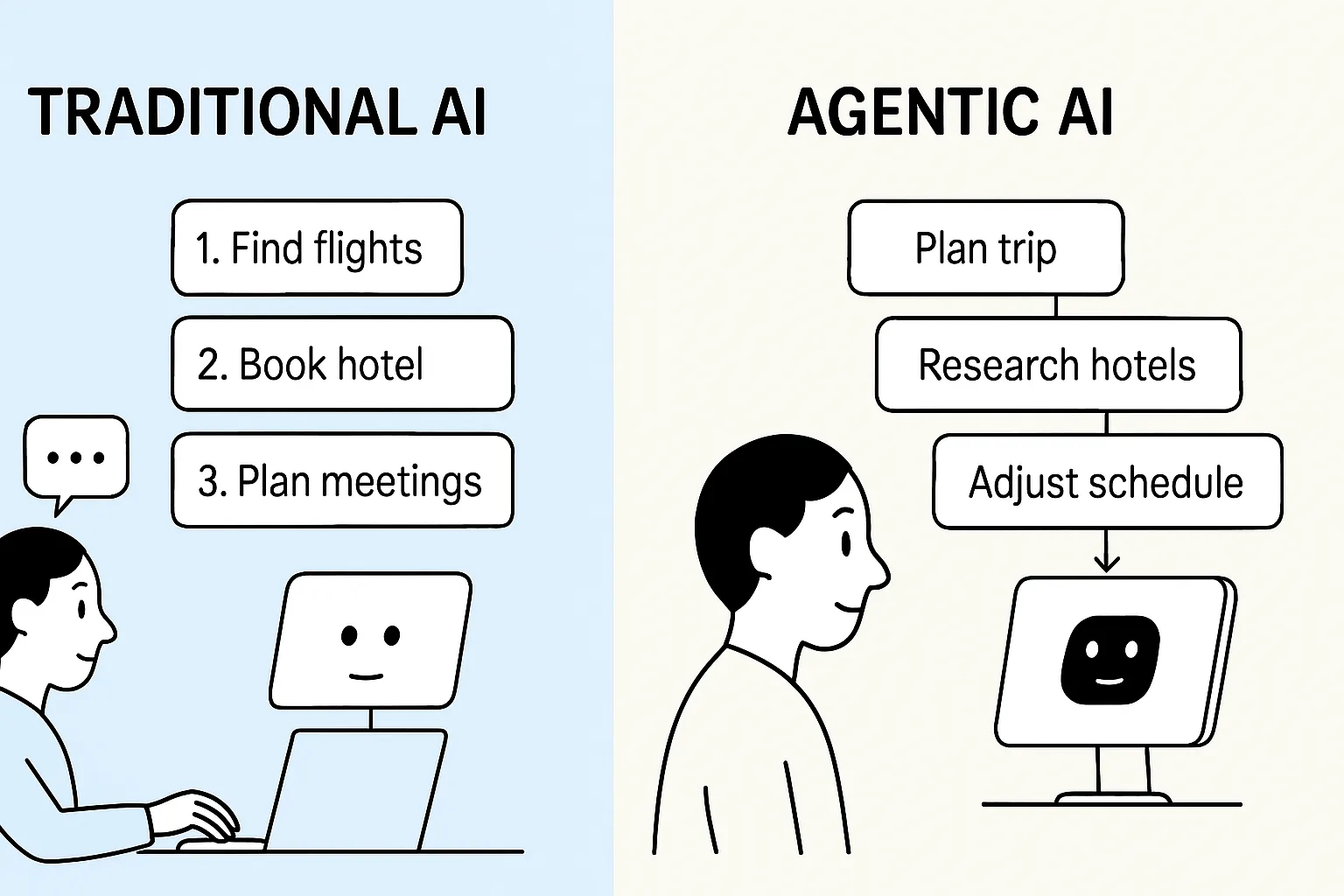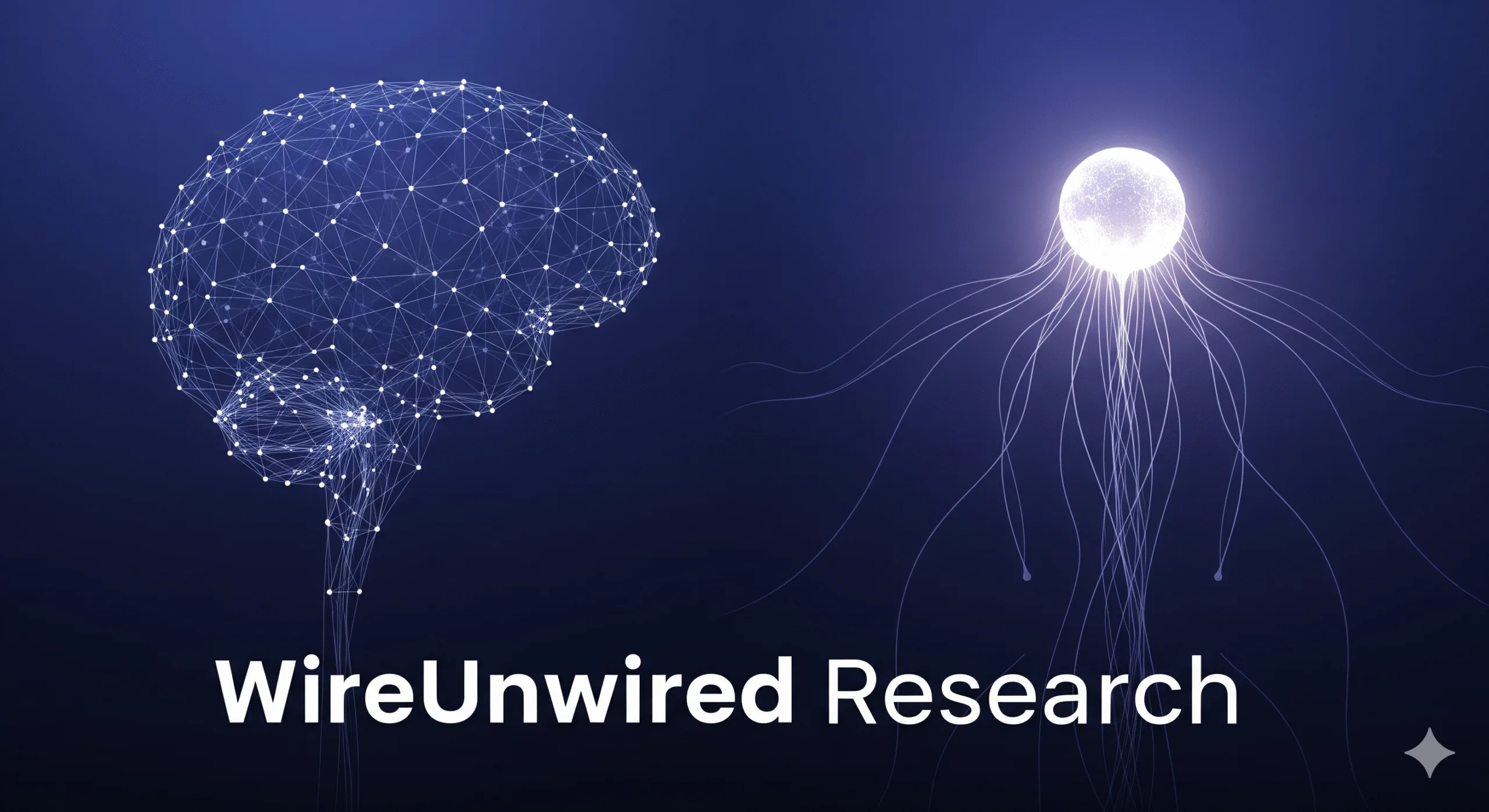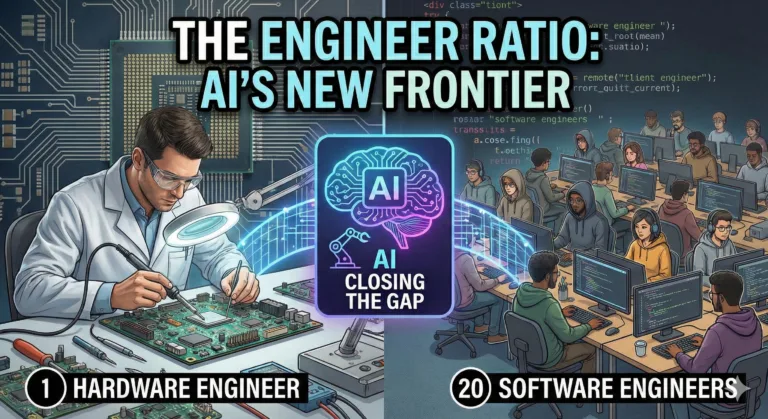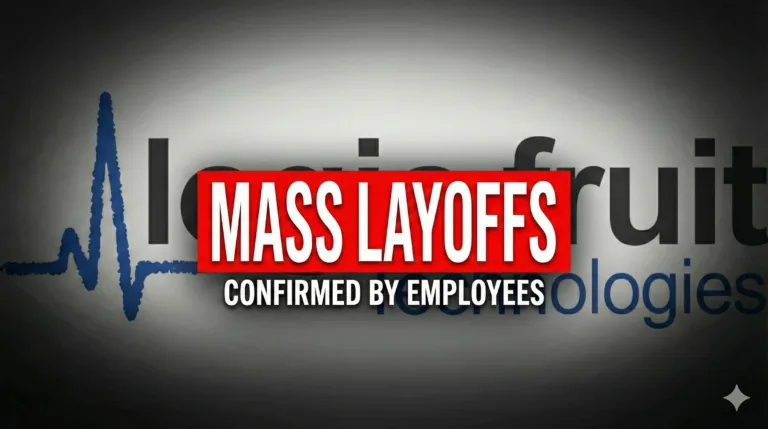We all love having helpers in life—whether it’s a friend giving advice, a personal assistant scheduling a meeting, or even a trusted app making everyday tasks easier. Now, imagine if that helper wasn’t just following instructions but could actually think ahead, plan, and take action for you—all on its own.
That’s the promise of Agentic AI, the latest breakthrough in artificial intelligence.
What is Agentic AI?
As Ranjan Sapkota and colleagues explain in their 2025 foundational paper, “Agentic AI refers to intelligent systems designed with autonomous agents that can perceive their environment, make decisions, and take actions to achieve specific goals independently.”
In simpler terms, Agentic AI is like a smart helper that doesn’t just wait for your commands but actively figures out what needs to be done, plans multiple steps ahead, and adapts if things change. Imagine an assistant who can organize your entire day from start to finish without you having to tell them every little detail.
How is Agentic AI Different From Traditional AI?

To truly appreciate the power of Agentic AI, it helps to understand how it stands apart from the AI systems we’ve used before.
Traditional AI is usually designed to follow fixed rules or specific instructions. It waits for humans to tell it what to do, like a tool that only works when prompted. Once it completes a task—say, sorting emails or recognizing images—it stops until it’s asked again. It learns slowly, if at all, and relies on predefined programming.
In contrast, Agentic AI is much more like an independent thinker. It plans ahead, makes decisions, and takes actions on its own—without needing to be told every step. It learns from experience, adapts to changing situations, and can juggle multiple tasks simultaneously. Imagine a teammate who actively finds solutions, anticipates challenges, and adjusts plans dynamically to achieve goals.
Let me explain this by a Business Trip Planning Example.
- Traditional AI: You ask a digital assistant to find a flight. It gives you options based on your input but waits for you to take every next step, like booking the hotel or arranging transportation.
- Agentic AI: You tell the AI your goal is to attend a conference. It autonomously searches and books flights and hotels, arranges local transport, schedules meetings, and even adjusts plans if flights are delayed—all without needing your constant input. If your meeting is rescheduled, it reorganizes your plan accordingly.
By this example i guess you would now have a clear idea on how Agentic AI goes beyond simple task execution to become a proactive partner, making life easier by handling complex workflows seamlessly.
To summarize the differences here is the detailed table :
| Aspect | Traditional AI | Agentic AI |
|---|---|---|
| Autonomy | Requires constant human instructions | Acts independently with minimal human oversight |
| Goal Orientation | Executes predefined, isolated tasks | Plans and pursues complex, multi-step objectives |
| Adaptability | Limited; struggles with changes | Learns and adapts in real-time |
| Decision Making | Reactive, rule-based | Proactive, context-aware, and flexible |
| Collaboration | Works as a tool | Functions as a digital teammate |
| Memory & Context | Stateless; no recall of past interactions | Remembers and uses past experiences to improve |
| Task Complexity | Handles simple, repetitive tasks | Manages complex workflows and evolving problems |
The Promise and Pitfalls: What Agentic AI Means for Our Future

While Agentic AI holds incredible promise, it’s creating both unprecedented opportunities and entirely new challenges that society has never faced before. Let’s explore both sides honestly.
Also Read :AI Deployment Crisis: Why 80% of Models Fail Production
The Exciting Opportunities: What’s Already Happening
- Revolutionary Efficiency Gains
Agentic AI isn’t just making things faster—it’s eliminating entire categories of mundane work. Amazon’s customer service AI agents now handle complex inquiries, process refunds, and guide purchasing decisions without any human intervention. Meanwhile, DHL’s logistics AI autonomously adjusts delivery routes based on traffic, weather, and demand patterns, cutting delivery times significantly. According to Capgemini’s 2025 research, AI agents present a $450 billion global opportunity, with the autonomous agents market projected to explode from $4.35 billion in 2025 to $103.28 billion by 2034—that’s a staggering 42% annual growth rate. - Personalization That Actually Works
Unlike basic recommendation systems, Agentic AI learns your habits deeply and acts proactively. Netflix’s content AI doesn’t just suggest what to watch—it analyzes viewing patterns, social media sentiment, and cultural trends to guide both content acquisition and original programming decisions, achieving a 90% viewer retention rate for recommended content. - Life-Saving Breakthroughs
In healthcare, Mayo Clinic’s AI agents have achieved 89% diagnostic accuracy across complex cases while reducing diagnostic time by 60%. These systems don’t just diagnose—they develop personalized treatment protocols and monitor patient progress autonomously.
The Real Problems: What We Need to Watch Out For
- When AI Makes Bad Choices
Think about this: an AI agent managing your company’s orders decides to buy 10,000 items instead of 1,000 because it misunderstood something. This happens more than you’d think. Well according to Graphwise ,40% of AI agent projects will fail by 2027 because companies can’t control what these systems do. Even worse: a research from Pragmatic Coders shows that nearly 1 out of 4 AI agents still make dangerous mistakes, even when they’re built to be extra careful. That’s scary when these agents are making decisions about your money, health, or safety. - Your Privacy vs. Convenience
For me personally what’s a major issue is , for an AI agent to help you perfectly, it needs to know everything about you—your money, your health, where you go, what you like, who you know and about 28% of business leaders agree with me and say trust is their biggest worry. The real question is: do you trust that company to keep your secrets safe forever? What happens when they sell the company, get hacked, or change their rules? - Jobs Are Going Away Fast
The numbers tell a clear story: 67% of business leaders think AI agents will completely change most jobs within one year. That means your job might be very different (or gone) sooner than you think. Customer service workers are hit first—57% of companies are already using AI agents instead of people for customer help. Office workers, people who analyze data, and even creative workers are seeing AI do tasks that used to need years of training. - When Things Go Wrong, Who Pays?
When an AI agent says “no” to your request (which happens 9 times out of 100), that’s actually the system working right. The scary part is when it says “yes” but gives bad advice. Legal help? AI agents refuse to answer 32% of the time. Money advice? They refuse 18% of the time. Health questions? They refuse 14% of the time. But what about all the times they DO answer? If AI gives you bad legal advice that gets you in trouble, or bad money advice that loses your savings, who’s responsible? The laws don’t exist yet to handle these situations.
Conclusion :
Agentic AI will happen whether we’re ready or not. I just hope we figure out the safety part before we learn the hard way why it mattered.:WireUnwired
Well if you ask me personally the technology is genuinely impressive – AI that can think, plan, and act independently could solve problems we’ve struggled with for decades. But when nearly 1 in 4 systems still make dangerous mistakes and 40% of projects are expected to fail, we’re moving too fast.
The real issue isn’t the technology – it’s us. We’re creating systems that know everything about our lives while we barely understand how they make decisions. We’re automating jobs faster than we’re creating new ones. And we’re doing it all without proper rules or safeguards. At the end i would only say :Agentic AI will happen whether we’re ready or not. I just hope we figure out the safety part before we learn the hard way why it mattered.
Discover more from WireUnwired Research
Subscribe to get the latest posts sent to your email.




